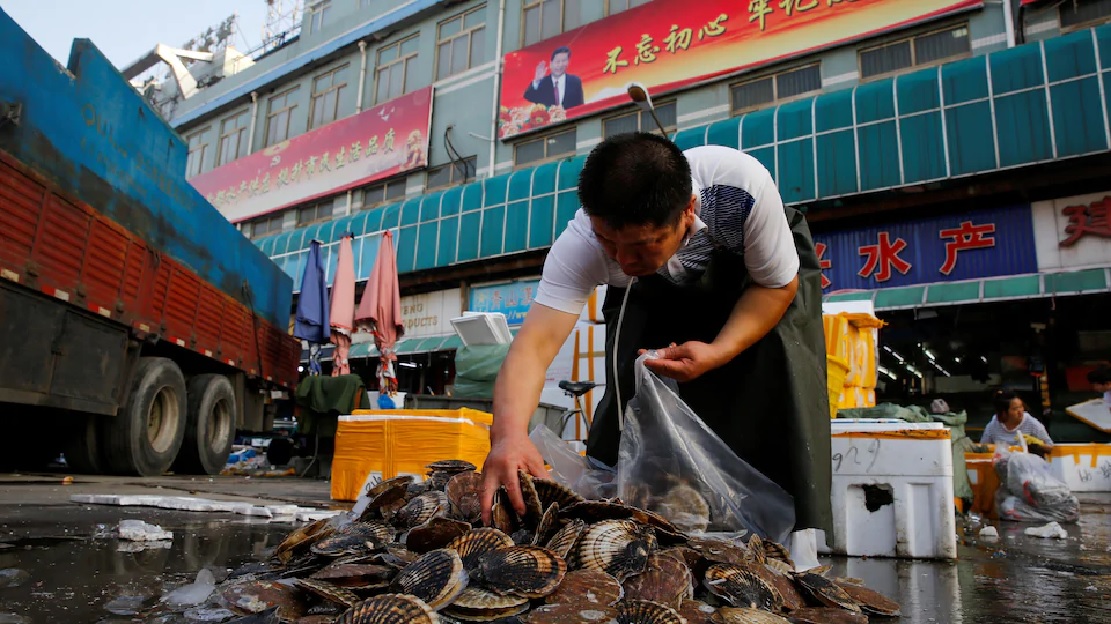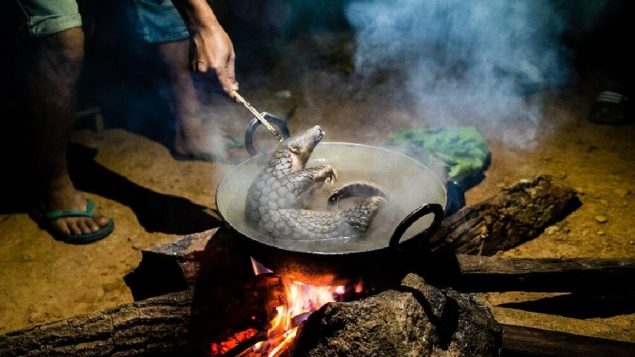Saying that these wild animal markets in Asia and Africa have been the source of deadly pandemics, some 200 organisations have joined in an open letter to call for an end to the sale of wild animals in markets for human consumption and in so-called traditional medicine.
Long concerned about the cruelty to the animals, and threats to the survival of endangered species, they now also say the markets are shown to be a threat to human health.

The so-called ‘wet markets’ which sell all manner of live and dead animals and seafood with unsanitary conditions are ideal for propagation of pathogens (Thomas Peter Reuters)
Groups such as World Animal Protection, International Fund for Animal Welfare, Humane Society International, Born Free, Wild Aid, and many others sent the letter to the World Health Organisation saying the COVID-19 pandemic started in a Chinese wildlife market, also known as ‘wet markets’ as did the SARS pandemic before it. It says during SARS China closed those markets but reopened them later and within months, COVID-19 began.
We call upon the WHO to publicly and unequivocally state the proven link between these markets and serious threats to human health. In line with its stated mission to serve public health at all times, we urge the WHO to recommend that governments worldwide permanently ban live wildlife markets and the use of wildlife in traditional medicine. This decisive action, well within the WHO’s mandate, would be an impactful first step in adopting a highly precautionary approach to wildlife trade that poses a risk to human health. …(Lion Coalition open letter to WHO April 6/2020
The groups also want the WHO to change their endorsement of traditional medicines using animals.
The letter calls for the WHO to:
- Recommend to governments worldwide that they institute a permanent ban on live wildlife markets, drawing an unequivocal link between these markets and their proven threats to human health.
- Recommend to governments that they address the potential risks to human health from the trade in wildlife – including collection from the wild, ranching, farming, transport, and trade through physical or online markets for any purpose – and act to close down or limit such trade in order to mitigate those risks.
- Unequivocally exclude the use of wildlife, including from captive bred specimens, in WHO’s definition and endorsement of Traditional Medicine and revise WHO’s 2014-2023 Traditional Medicine Strategy accordingly to reflect this change.
- Assist governments and lead a coordinated response among the World Trade Organization, World Organization for Animal Health (OIE) and other multilateral organizations worldwide in awareness-raising activities to clearly inform of the risks of wildlife trade to public health, social cohesion, economic stability, law and order and individual health.
- Support and encourage initiatives that deliver alternative sources of protein to subsistence consumers of wild animals in order to further reduce the risk to human health.
additional information-sources
- Lion Coalition: Open letter to WHO (Apr 6/20)
- Humane Society International: Open letter to governments (Apr 7/20)
- ISSUU: Open letter includes list of signing organisations (PDF)
- Animal Wellness: open letter to US Congress
- Canadian Manufacturing: Apr 7/20: World Animal Protection calls on WHO to ban wildlife markets
- PRN newswire (via Pharmacy & Therapeutics): Apr 7/20: World Animal protection calls on WHO for global ban on wildlife markets
- USA Today: Miller/Hauck: Feb.15/20: Pangolins may have spread virus to humans







For reasons beyond our control, and for an undetermined period of time, our comment section is now closed. However, our social networks remain open to your contributions.